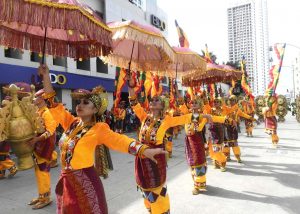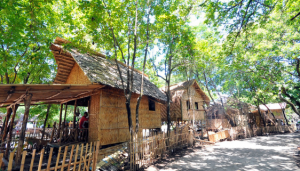Mental health problems remain among the highest issues of residents who survived the months-long skirmishes between government troops and residents of Marawi City.
This as stakeholders reviewed the imposition of Martial Law a year after the Marawi Siege last May.
Trauma, for example, has affected children as young as toddlers who now fear airplanes.
Fr. Chito Soganub, who has worked alongside survivors of the Marawi Siege, said they have received reports there are children who now cry whenever they hear airplanes.
“They saw it happen,” Soganub said, referring to the bombardment of targets in Marawi City during the skirmishes between government troopers and Maute terrorists.
At first, the kids made fun of airplanes as if these were defecating. Until the bombs exploded next to their homes.
Fr. Soganub said that huge crater marked the ground after the explosion. And now, the priest said, that is their memory of aircraft.
“Dumb bombs,” or unguided bombs, were dropped in hundreds of spots in Marawi City by the Philippine Air Force who provided air cover for ground troopers in the fierce fighting starting May 2017.
Various aircraft coming from different PAF units were deployed in Marawi City, with the most notable aircraft being the FA50 Bulldogs fitted with bombs, as well as OV10 Broncos.
As early as the first months of the siege, residents were already traumatized by the fighting, as some of them had to walk in between the crossfire between both sides. “You can imagine the trauma of the children,” Soganub said.
The Armed Forces of the Philippines (AFP) said that to date, the explosives and ordnance teams are still on the ground and assessing the bombs that could still be on the ground even months after the government declared the site clear of terrorists.
Prof. Dalomabi Bula, who teaches at the Mindanao State University-Marawi, said that the internally displaced persons from 24 barangays from Ground Zero were left to fend for themselves, even amid government claims that they were supporting residents in Marawi with aid from the Department of Social Welfare and Development (DSWD).
“Ang mga nakabalik, sila yung napamper. Pero kami, nasiraan na nga, walang wala, pinabayaan kami,” Prof. Bula said.
The development plans, so far, which aimed to be constructed by 2022, involve the construction of roads, water, sewerage, public offices, schools, hospitals, and barangay halls, among others.
“There’s nothing for the civilians,” she said.
Dr. Gail Ilagan, who represents the Philippine Association of Psychologists, said that mental health workers are ready to provide psychosocial care for those who are affected by the Marawi Siege.
The images of traumatized children are among the generally undiscussed topics, according to Bula and Soganub.
Both were guests at the “Revisiting Marawi from the Lens of Interfaith Dialogue and Multiculturalism,” held Saturday afternoon at the Ateneo de Davao University Pakighinabi Room.



